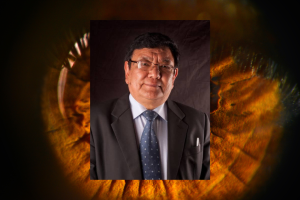What are people talking about me? Why are they staring at me? Is someone watching me?
These kinds of questions might seem normal to some people in their minds.
But they could point to a mental health issue which is generally known as Paranoia.
Paranoia is a state of thinking and feeling as if you are threatened by someone though there is no such evidence.
Also, these thoughts are often known as delusions.
For example, someone made a nasty comment on you once, then you think they are going to hate you forever no matter what you do.
What are the symptoms of paranoia?
- Being easily offended
- Finding it difficult to trust others
- Take others advice in a nasty way
- Not being able to compromise
- Assuming that people are talking behind the back
- Finding difficulties in making good relationship with people
- Being hostile and aggressive
- Always being defensive
- Being overly suspicious
Why does anyone experience paranoia?
Genes:
Research have shown that genes are more likely to be a cause of having paranoia. If your forefathers or any one of your parents have paranoia, there is a high chance of you having the same disease or face same kind of behavior in you.
Brain chemistry:
Usage of drugs such as cocaine, marijuana, cannabis, and excessive inhale of alcohol can all trigger paranoid thoughts, feelings and behaviors. Researchers believe that there is a high chance for people who consume excessive alcohol and drugs to have paranoia due to biochemical disorder.
Traumatic life events:
People are more likely to have paranoia when they are isolated or in a stressful situation that could lead you feeling negative or sad. For example, if you are bullied at workplace, school or college, there is a high chance for you to develop suspicious thoughts in your mind.
Stress reaction:
Lack of sleep or too much of tensions in life can trigger feelings of insecurity and even unsettling feelings and hallucinations. Fear or worries may be developed overnight due to stress.
External environment:
Research have found out that paranoid thoughts are more common to people who live in urban areas or community where you feel isolated from people around you rather than connected to them.
What are the treatments available?
Medication:
If you have a diagnosis of paranoia, you are likely to be offered anti psychotic drugs to reduce the symptoms.
Therapy:
This can help the person to cope with the symptom and also help in improving their ability to function. However, some people may feel awkward to talk to the therapist making progress very slow.
Coping skills:
Relaxation therapy, techniques to reduce anxiety or behavior modification can be helpful for reducing the anxiety and pressure the person having paranoia gets.
Hospital admission:
In severe cases, the person may need to stay in hospital until the condition causing paranoia stabilizes.
How can you help yourself?
Keep a diary:
Keep up notes regarding what your paranoid thoughts are and how you feel about them. You could do this using notebook or any mobile applications. Identify what might be triggering you and when do they occur.
Look for support:
Talk to someone whom you trust and can share your thoughts freely. Also, you may find that talking about your thoughts with a trusted friend or family member can reduce stress level and help in coping with paranoia easily.
Look after yourself:
Sleep can give you the energy to cope up with any difficulties. So, get enough sleep. Also, eat regular keeping up with your diet. It will help you a lot to make your mood and energy levels high. Likewise, exercise regularly for your mental wellbeing.











